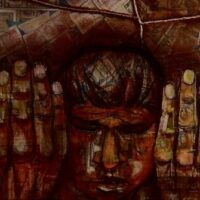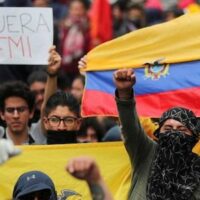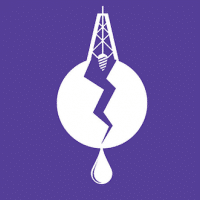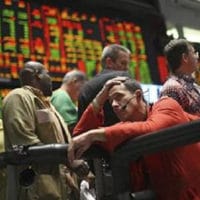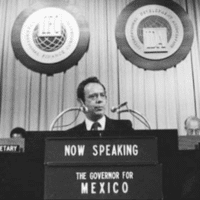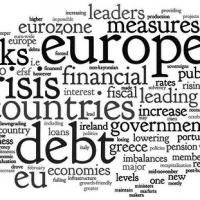-
The urgent need to repudiate debt
It is now time to react concerning the issue of debt cancellations and repudiations.
-
How France continues to dominate its former Colonies in Africa
In France’s former African colonies, imperialist monetary policies from Paris continue to cripple domestic economies and undermine democracy. Colonialism in Africa won’t have meaningfully come to an end until true economic sovereignty is allowed to flourish.
-
Resistance against the policies imposed by the World Bank, the IMF and other creditors between 2007 and 2011
Ecuador provides an example of a government which officially decided to investigate the process of indebtedness so as to identify illegitimate debt and suspend its repayment.
-
From Rafael Correa to Guillermo Lasso via Lenin Moreno
On 11 April 2021, Guillermo Lasso (52,4%), the right-wing candidate, defeated Andres Arauz, the candidate supported by Rafael Correa and part of the Left, by 52.4% vs 47.6% in the second round of ballots for the presidential election.
-
Ecuador’s poisoned loans from the World Bank and the IMF
Ecuador provides an example of a government which officially decided to investigate the process of indebtedness so as to identify illegitimate debt and suspend its repayment.
-
The Paris Commune of 1871, banks and debt
150 years ago, on 18 March 1871, the Paris Commune was born.
-
Thomas Piketty and Karl Marx: Two totally different visions of Capital
In his book Capital in the Twenty-First Century, Thomas Piketty has gathered his data meticulously and provided a useful analysis of the unequal distribution of wealth and income, yet some of his definitions are somewhat confusing and even questionable.
-
In memory of Patrice Lumumba, assassinated on January 17, 1961
On 17 January 2021, we commemorate the 60th anniversary of the assassination of Patrice Lumumba (1925-1961).
-
Illicit Financial Flows: Africa is the world’s main creditor
Contrary to the dominant discourse, it is actually the case that the 54 African states finance developed countries and not the other way round.
-
Climate and environmental crisis: Sorcerer’s apprentices at the World Bank and the IMF
In December 2020, on the occasion of the fifth anniversary of the signature of the Paris Agreement on Climate, the UN General Secretary sounded the alarm because the situation has fundamentally worsened. In this article we analyze what the World Bank and the IMF have done in connection with the environmental crisis and climate change.
-
From Paul Wolfowitz (2005-2007) to David Malpass (2019-…): the U.S. President’s men control the World Bank
In 2020, the World Bank (WB) and the IMF are 76 years old. These two international financial institutions (IFI), founded in 1944, are dominated by the USA and a few major allied powers who work to generalize policies that run counter the interests of the world’s populations.
-
Reply to the letter by Philippe, King of the Belgians, about Belgium’s responsibility in the exploitation of the Congolese people
On 30 June 2020, on the occasion of the 60th anniversary of the former Belgian Congo’s independence, the news went viral over the planet: Philippe, King of the Belgians, had conveyed regrets for the colonial past, and particularly for the time when Leopold II owned the Congo as a personal possession (1885-1908), to the Congolese head of state and to the Congolese people.
-
Another look at the Federal Reserve’s panic in September 2019 and solutions to the crisis
You may recall that from 17 September 2019, the United States Federal Reserve injected massive amounts of liquidity into banks due to a quite abnormal situation on the repo market.(1) The repo market designates a mechanism used by banks to obtain short-term financing. They sell securities they hold in repurchase agreements (repo).
-
The Mexican debt crisis and the World Bank
In 2019, the World Bank (WB) and the IMF will be 75 years old. These two international financial institutions (IFI), founded in 1944, are dominated by the USA and a few allied major powers who work to generalize policies that run counter the interests of the world’s populations.
-
The mountain of corporate debt will be the seed of the next financial crisis
What have they done with the money? Have they invested in research and development, in production, in the ecological transition, in creating descent jobs, warding off climate change? Not at all!
-
The challenges for the European left regarding debt and the banks
The policy of Quantitative Easing (QE) has been implemented by the ECB since 2015 in the wake of what the Fed had done in the U.S. from 2008 to 2014. It consists of massively purchasing private and public debt securities from banks in the Eurozone and from corporations.
-
Adam Smith and the Yellow Vest Movement
It is sad to see how completely misrepresented Adam Smith (1723-1790) is when pundits call upon him to vindicate neoliberalism and the status quo. It seems many have not really bothered to read his works.
-
The challenges for the Left in Europe and the Eurozone
The policies dictated by the European leaders have six fundamental objectives; Bail-out the private banks with public funds, preserve the Eurozone perimeter, bring neoliberal policies to bear more heavily on Greece, reinforce a Europe-wide authoritarian form of governance and more.
-
We struggle against illegitimate public and private debt which are at the core of the capitalist system
What we are fighting is a capitalist system that destroys nature.



